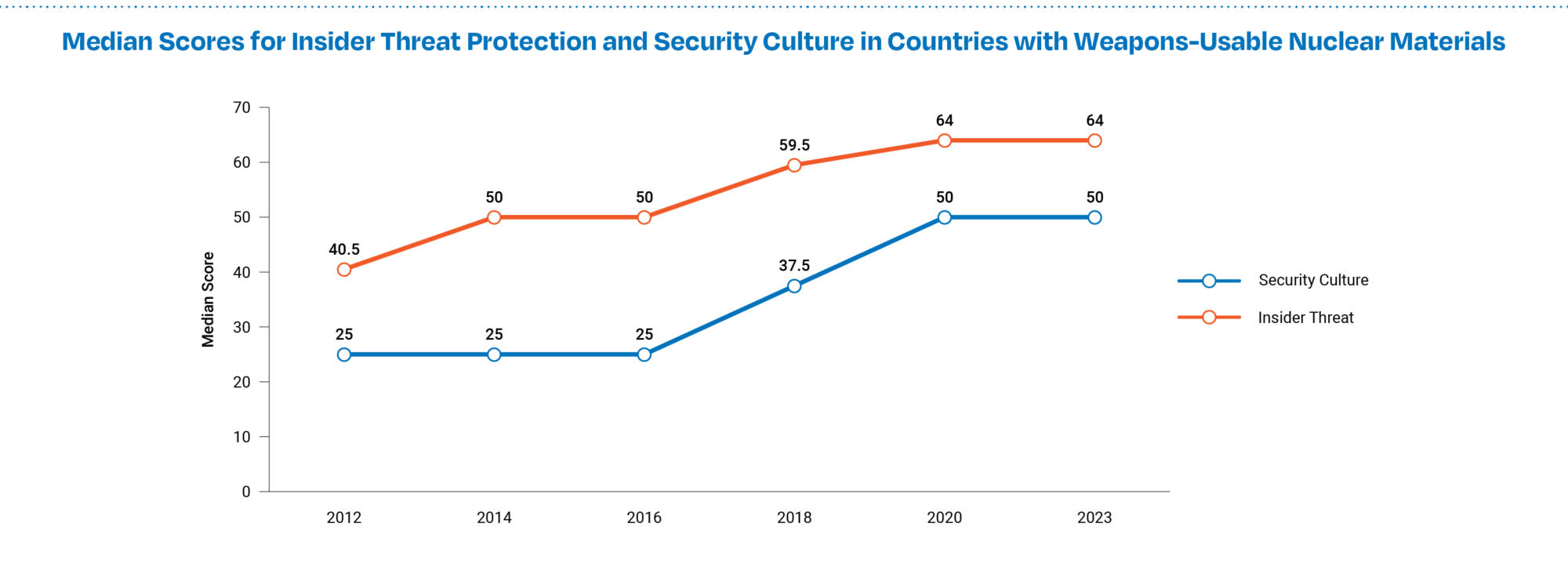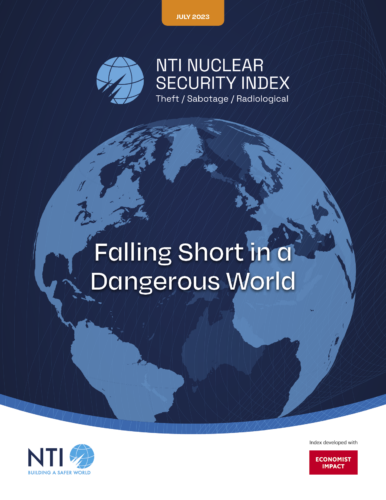Finding
Countries and areas with weapons-usable nuclear materials and nuclear facilities made no progress in two crucial and mutually reinforcing areas of nuclear security: security culture and insider threat prevention.
Data Highlights
- The median Insider Threat Prevention score in countries with weapons-usable nuclear materials is low and, because of deterioration in France’s personnel vetting practices, stayed the same between NTI Index editions for the first time since 2014. (See Figure 5.)
- In the 46 countries and Taiwan with nuclear facilities, the median Insider Threat Prevention score hit a record low of 34, a reflection of the weakening of personnel vetting practices in France and Ukraine.
- Chile, Finland, Japan, Norway, and Romania increased their Insider Threat Prevention scores, but these changes were not significant enough to improve the median overall score.
- The median Security Culture score for countries with weapons-usable nuclear materials did not improve from the 2020 NTI Index. (See Figure 5.)
- Belgium was the only country with weapons-usable nuclear materials to improve its Security Culture score. By referencing security culture in its annual report or its regulations and by requiring security culture assessments at nuclear facilities, Belgium’s score increased by 50 points, giving it one of the top Security Culture scores of countries with weapons-usable nuclear materials.
Data Visualizations

Recommendations
- Countries and areas with weapons-usable nuclear materials and nuclear facilities should intensify their efforts to establish and strengthen programs aimed at identifying and mitigating insider threats. Nuclear facilities should be able to defend against a sophisticated insider with deep knowledge of the facility and insiders collaborating with outsiders.
- Nuclear operators should have programs to strengthen security culture within their organizations that emphasize the importance of including diverse voices in nuclear security system development, implementation, and vulnerability assessments.
- Regulators, intelligence organizations, law enforcement, industry, and non-governmental organizations should share appropriate information related to threats, peer review, and lessons learned from nuclear security incidents. This information should include case studies in which nuclear facility operators successfully defended against threats and where a facility failed to address a security challenge.
- Civil society organizations, especially those participating in international gatherings, should demand and support stronger nuclear security around the world. In particular, non-governmental organizations should offer innovative ideas, encourage governments to act, track nuclear security progress, and educate the public.

